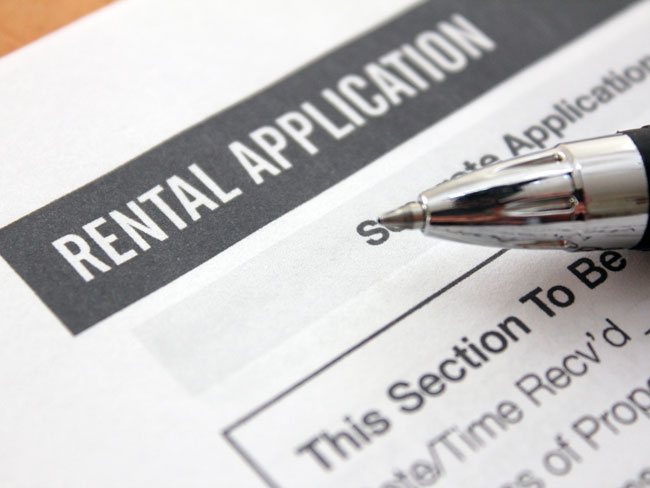
DOCUMENTATION – WHAT DOCUMENTS ARE NECESSARY TO START A TENANCY?
Hope for the best prepare for the worst. Proper documentation is not only required by legislation but is good business sense. Setting up strong foundations with thorough documentation means you can relax more easily.
The tenancy agreement
There are two types of tenancies – fixed term and periodic.
Fixed term
Set for an agreed period, the rent is fixed and the tenant cannot be evicted. If the tenant stays on, the lease automatically becomes ‘periodic’ unless both parties agree to renew and enter into another fixed term agreement.
Periodic
On completion of the fixed term, if the tenant is remaining, the tenancy automatically moves to a periodic, or month-by-month, agreement. The rules and obligations of the original agreement remain the same with different rules for ending the tenancy and increasing the rent.
Rent increases
If rent increases have been agreed to during the period of the fixed term it needs to be stipulate in the lease agreement. This is particularly useful in leases that are longer than twelve months.
Additional terms
You can include other terms that have been agreed between you and the tenant, but they must not contravene the standard terms of the agreement or any state or federal law.
There are also some terms that you are prohibited from adding to the agreement, including:
▪ Insisting on having the carpets professionally cleaned. An exception is if you have agreed to allow the tenant to have a pet.
▪ Insisting the tenant take out any form of insurance.
▪ Exempting the landlord, or his agent, from legal liability.
▪ Penalties for any breaches of the lease.
▪ Performance-based rebates on rent.
▪ Insisting the tenant use a particular tradesman, for example, for pool and garden maintenance.
You can also elaborate on and clarify important issues that you feel may be inadequately covered in the tenancy agreement. Even though, in the event of a tribunal hearing, you may not necessarily win, it does give the tenant pause before choosing to challenge it.
Additional terms may include:
Dishonoured cheques
The tenant acknowledges and agrees to pay all relevant bank fees in the event of a rent payment being dishonoured for any reason.
Repairs
The tenant acknowledges and agrees that requests for all non- urgent repairs are to be submitted in writing.
The tenant acknowledges that repairs will be carried out between the hours of 7am and 5pm Monday to Friday.
The tenant acknowledges that in the event the tenant has agreed to an appointment with a tradesperson for the repair of an appliance, fixture or fitting, the tenant will pay the call-out fee in the following circumstances:
▪ The tradesperson finds no fault in the appliance, fixture or fitting.
▪ The tenant has not operated the appliance, fixture or fitting in the correct
▪ The tradesperson has not been able to gain access to the premises because of the tenant’s failure to attend at the appointed time.
The tenant acknowledges and agrees that any mail delivered to the rental premises, not addressed to them, will be forwarded to the landlord or managing agent without delay.
Insurance
The tenant is aware that the landlord’s insurance on the rented premises does not cover the tenant’s possessions and it is recommended that personal contents insurance be arranged.
Premises
The tenant agrees not to place any pot plants on any carpeted areas in the premises.
The tenant acknowledges and agrees not to attach or place any adhesive, hooks, nails or other fixtures to any of the surfaces in the premises without prior written consent of the landlord.
It is a breach of the lease conditions for a tenant to change or alter the locks on the premises without consent from the managing agent. In the event that consent is given, a copy of the keys must be given to the landlord or his agent within forty-eight hours.
The tenant agrees to do no decorating or painting without written permission from the landlord or managing agent.
The tenant acknowledges and agrees that smoking is not permitted by any persons within the premises.
Garden and pool
The tenant agrees to maintain the lawns and garden to at least the standard they were in at the beginning of the tenancy.
The tenant agrees that even if the landlord is responsible for the regular servicing of the garden, it is the tenant’s responsibility to maintain the day-to-day care of the garden.
Where the property includes a pool, the tenant agrees to purchase all the necessary pool chemicals and testing equipment in order to keep the pool clean and fit to swim in.
The tenant agrees that, even if the landlord is responsible for the regular servicing of the pool, it is the tenant’s responsibility to maintain any day-to-day care, such as removing leaves.
Contact details
The tenant agrees to notify the landlord or his agent of any changes in work and mobile contact numbers within seven days.
Pets
No pets are allowed anywhere within the property unless otherwise agreed in writing by the landlord.
In the event that permission is given to allow a pet on the property, the tenant agrees to have the carpets professionally steam cleaned on vacating.
Keys
The tenant acknowledges that in the event they have lost or misplaced keys, the tenant shall replace them at his own cost.
If the tenant needs to borrow the duplicate key from the landlord or his agent, a deposit of $100 is required and will be reimbursed on its return.
In the event the tenant obtains permission to change locks, a copy of the keys is to be handed to the landlord or his agent as soon as practicable.
By-laws
The tenant agrees to comply with the by-laws and with any notice served in accordance with the by-laws.
The tenant guide
This is an essential document that needs to be given to the tenants so that they are aware of their rights and responsibilities.
Condition report
The condition report records the condition of the property at the commencement of the tenancy and is mandatory. When the tenant vacates, you will be referring back to the condition report to identify the condition of the property at the commencement of the tenancy.
If there are any disputes, this is the main evidence the tribunal will consider. Without it, you have no case.
The tenant has 7 days to agree with the report or make changes. The tenant then returns a signed copy to the landlord or agent. For more accuracy we include full resolution photos, typically over 100, as part of the condition report.
By-laws
If your property is part of a Strata Title you will need to give the tenant a copy of the rules or by-laws pertaining to the strata scheme and these need to be given to the tenant prior to signing the agreement.
The by-laws set out the rules that owners and tenants need to follow when living in a Strata Title building. These rules cover use of common property, garbage disposal, pool use and parking, among other things.
Include a special condition in the lease stating that the tenant has been given the by-laws and that they will abide by the rules as set out.
Keys
You will need a complete set of keys for yourself, one for the agent (if you are using one) and one for every tenant listed on the tenancy agreement. Create a photocopy of the complete set of keys you are handing to the tenant and have them sign that they have received the keys.
Tenant signing
Meeting with the tenant prior to moving in is particularly important.
At this meeting, you will go through the tenancy agreement in some detail, making sure the tenant understands his responsibilities. You also have this time to address issues such as arrears, preferred communication, cleaning, repairs, property quirks and any other matters you feel are important.
This is an essential part of ensuring that the tenancy starts on the right foot by discussing with the tenant what your expectations are and what he should expect from you while living in your property.
Allow at least half an hour to forty-five minutes to go over the documents.
A typical agenda, would be:
Initial welcome
The lease
Go through the lease thoroughly with the tenant; give him time to read it carefully.
Pets
Make sure they are aware of your position regarding pets.
Pool and garden
Confirm the arrangements and expectations for the pool and garden.
Smoke alarms
Discuss the tenant’s responsibility to advise of any issues and not to tamper with the smoke alarm.
Arrears
Explain why it’s important to be on time with payments, what your policy is and the processes to be employed if they are late.
Repairs and maintenance
Make sure the tenant understands what an urgent repair is and what to do.
Routine inspections
Explain the process for routine inspections and how they can help you keep the property looking its best and properly maintained.
Condition report
Explain what they need to do next and how and when to return it.
Agreed repairs
Update the tenant on any repairs that need to be carried out. Discuss a timeframe and access to the property.
Keys
If handing over keys at this time have tenant sign for them.
Rental bond
Explain the rental bond procedure.
Rent in advance
Explain how rent is to be paid, how much and when. Make sure they understand the process of always paying in advance and on time. Discuss arranging a direct debit.
Hours of business
Discuss your preferred hours of business and what would be considered inappropriate times to contact you.
By the end of the meeting, you should be comfortable that the tenant is fully aware of the responsibilities and how to get in contact with you in the event of a problem.
About Us
George Astudillo is the founder of Property Quarters, an agency that values communication and great relationships with its landlords.
George now has more than 30 years in real estate, including 15 years as the owner of a national real estate franchise. He’s also an accredited auctioneer and is the author of “The Landlord Mindset”, a book with his best tips to help landlords look after their investments. His book has been quoted in the SMH, The Huffington Post and The Age.
As the founder of Property Quarters, George takes great care in looking after his landlord’s investments. Having seen it all and worked with may landlords and tenants, he’s a strong mediator and negotiator and knows how to navigate through property legislation.
George is trusted by his landlords to advise on the financial management of their investments. He’s put in place proven processes to ensure each property he looks after is managed effectively to retain its value, quality tenants and rental income.
If you’re looking for a property manager who thinks like a landlord and whose business is built on tested processes, contact us by clicking HERE.
Copyright © 2022, www.propertyquarters.com.au




